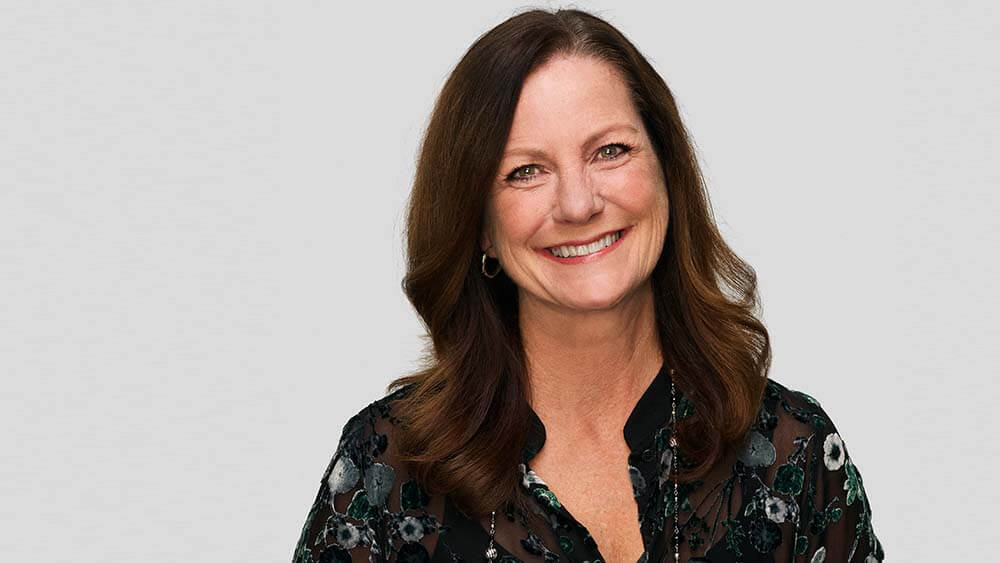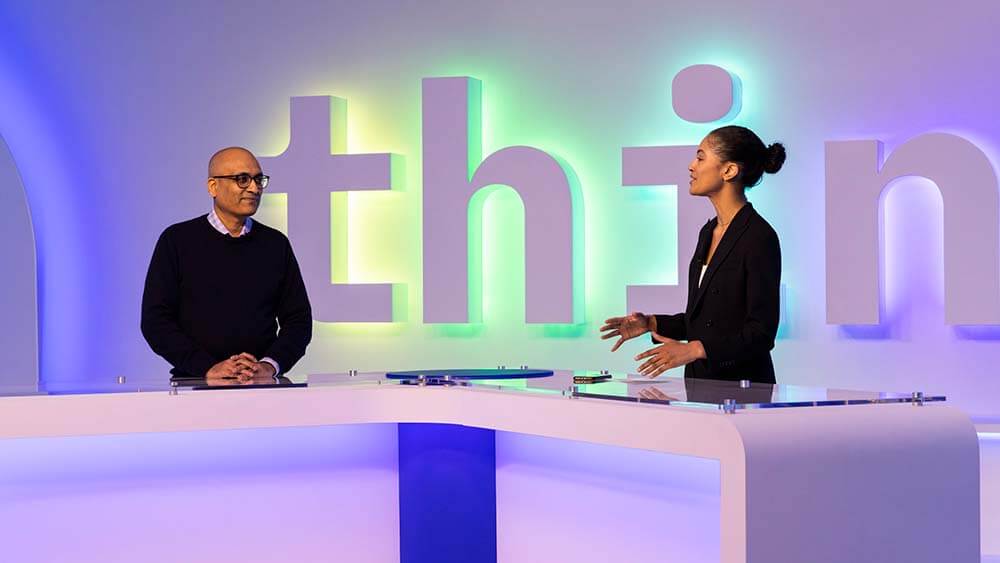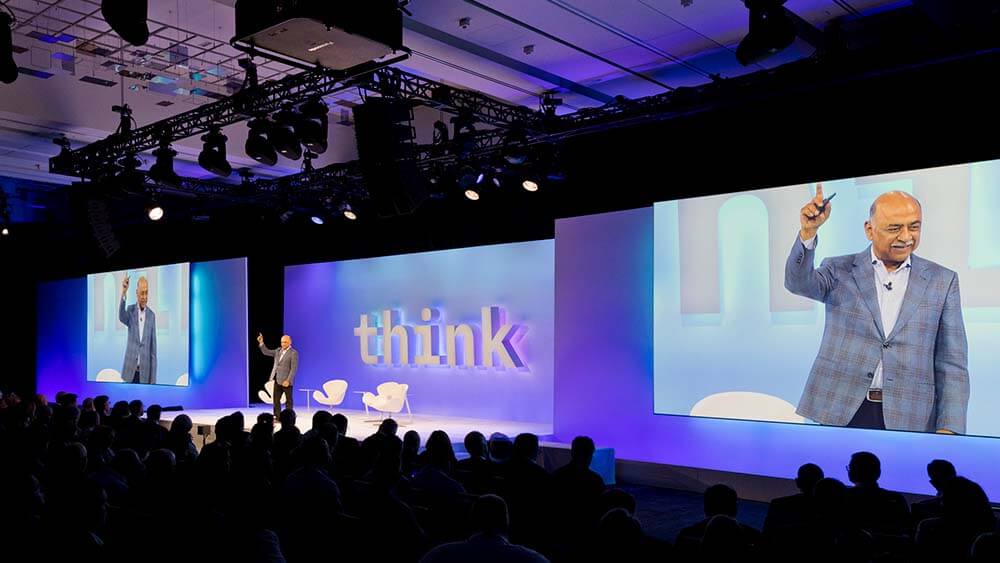
Colleen Bisconti, vice president of global conferences and events at IBM, is the incoming chair of the Corporate Event Marketing Association (CEMA), a wholly owned division of PCMA.
For 20 years, Colleen Bisconti has had a hand in shaping IBM’s event strategy. Currently vice president of global conferences and events, Bisconti will soon add another role to her impressive resume — she is the incoming chair of the Corporate Event Marketing Association (CEMA), a wholly owned division of PCMA. She will be a keynote speaker at PCMA’s Convening EMEA, Sept. 28-30 in Vienna, Austria. In May, Convene sat down with Bisconti, fresh off the launch of IBM’s Think on Tour, who shared the ups and downs of producing a brand-new event and what she’s looking forward to in the year ahead.
Congratulations on kicking off IBM Think on Tour. How has this flagship event evolved over the past few years?
It used to be, pre-pandemic, that Think was our single global conference — our flagship client and business partner event. In 2019, when we held the last Think in person, we were in San Francisco with close to 35,000 people. Fast forward to 2020 — all of a sudden, we had six weeks and we had to turn it digital, and we learned a ton, just like so many other people in my position, in terms of, how do you really think about the value that you can drive digitally versus the value that you do in person? We learned so much in the first year — we had over 120,000 people join us.
In 2021, we had to do it again [digitally]. We started using newer technologies, we started looking for ways to have deeper engagements with a digital audience — people were tired, they had Zoom fatigue. We watched our average viewing time on digital events go from a half an hour down to 14 minutes, so we really had to rethink that program.

This year, IBM launched a Think on Tour, which began in Boston (above) and will travel to 13 other cities, including Berlin, Singapore, Toronto, Paris, Madrid, Sydney, Dallas, Beijing, Mumbai, Rome, London, and Tokyo.
What’s different about this new version of IBM Think?
For 2022, we had put together a plan that took all of our learnings, both face-to-face and digitally, to get us back to a big global moment, to an event that would have worldwide appeal and that would generate some buzz around our client base. Instead of 30,000, let’s bring together 5,000 of the best. Let’s move our venue to a new place — Boston.
We were deep in planning mode and when I went and pitched the plans to our CEO and executive leadership team in January, I was met with dumb stares and quietness. Our CEO said, “The pandemic’s not over, so why do we think that bringing people from all over to Boston is a good idea?”
We very quickly changed our model. It became invite-only, it became complimentary, it targeted the right clients and business partners. So we put together a much smaller, more intimate plan. We kicked off a 14-city tour, starting in Boston [in May], and this model is actually working. It’s an invite-only model. We were hoping to get 250 people in each city and we have far surpassed that in all five cities [so far].
Tell us more about the tour concept for 2022 IBM Think — what is the purpose, how does the in-person experience work logistically, and what is different about the digital experience, specifically the Think Broadcast, produced with WIRED Brand Lab?
It’s this idea of bringing the content to you. It’s one event that we’re running 14 times. So, the consistency across the branding, the assets, the journey, the experience, the content — it’s all resonating, we’re actually creating buzz.
I shifted the [digital] strategy to be more like a news program, like the “TODAY” show. So if you tuned in to the Think broadcast, you didn’t watch what was happening in Boston, it just happened to be coming to you from Boston. It was very fast-paced, no segment was more than two minutes. We have two hosts we hired from WIRED magazine and we told client stories and had a little bit of fun.
We saw about 150,000 attendees [tune in] and the average [view] time was 91 minutes. That model totally shifted the digital behavior of people that joined us. We didn’t want to create a sense of FOMO, that wasn’t the intent, it was still to deliver high-value content, but do it in a completely different, unexpected way.

Arvind Krishna, chairman and CEO of IBM, speaks on stage at IBM’s Think on Tour. Participants tuning into the event’s broadcast will hear from more leaders at IBM and other businesses.
What are some of the challenges you see the industry encountering as we return to in-person events?
In the tech field, at least … we used to charge for these kind of events, right? So, there was zero appetite for people to pay to come back. Associations and other industries are different, but for the tech field, that’s how we paid to put these things on, by charging a [registration] fee. We need to do more focus groups, but I think that was another key learning, doing this complimentary — have we set ourselves up right for this, and is the new model moving forward? What will that look like in 2023?
How has being a part of CEMA benefited your career?
It’s been at least five years that I’ve been either a member or acting on the board. Even though IBM is this massive company, and even though we have over 300 event marketers, we still only know what we know. I wanted to find a way for myself and a couple of the key leaders on the team to be part of something where you could have these ongoing conversations, where you have ongoing education from outside our company. I started meeting people at CEMA and I was amazed at some of the conversations and the peer-to-peer exchanges and what I was learning.
When the pandemic hit, the bottom fell out of our industry overnight. And you had people within this industry that just said, okay, we have to wait this thing out, and you had other people that said, this is a huge opportunity to reinvent, to reach a much bigger audience. Kim [Gishler, CEMA’s executive director] and Olga [Rosenbrook, CEMA’s director of member services] did an unbelievable job of putting together education programs to help people through this. And it wasn’t just about how do you run a digital event, [it was] talking about mental health, how do you stay motivated, and how are people seeing success that maybe you can learn from.
What do you hope to achieve in your role as incoming chair at CEMA?
Education is so important inside IBM, but we tend to educate people on our products, like how is IBM changing the world. But what about what I need to do my job every day? Like digital event marketing, because we will always have a digital component? I would love to be a bigger force in the industry and use a lot of the connections that I have, the learnings that I have, to really foster conversations. That’s what I’m hoping to do in the second half of this year and into next year.
Jennifer N. Dienst is senior editor at Convene.
